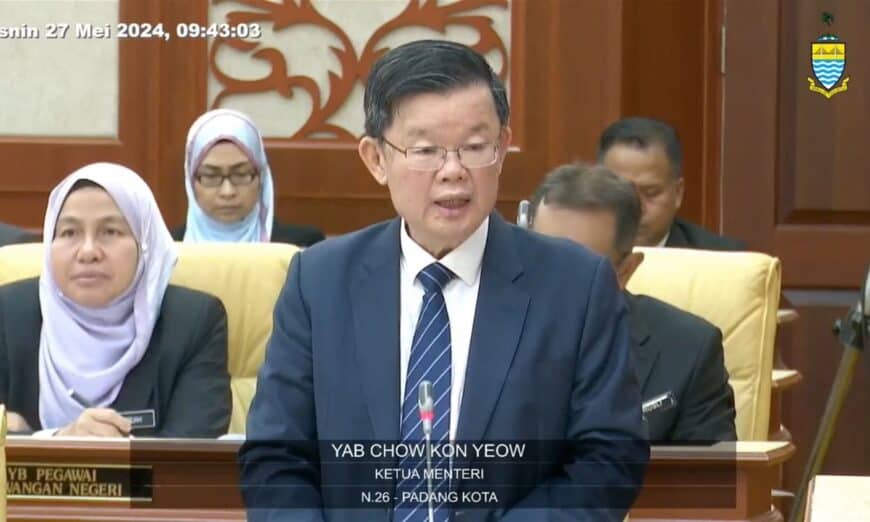THE increase in state deficit is attributed to the various beneficial programmes implemented for the people of Penang, according to Chief Minister Chow Kon Yeow.
He said these programmes underscore the state government’s commitment to the well-being of its people, despite a lack of significant growth in state revenue, resulting in a deficit.
“The state expenditure mostly focuses on various programmes under i-Sejahtera, support for the disabled, senior citizens, single mothers and Golden Child Programme.
“This also includes providing cash assistance to taxi drivers, bus operators and trishaw riders and special allocations for various schools in the state.
“An annual spending of RM240 million is also required to cover the implementation of various development projects across the state,” Chow (PH-Padang Kota) stated in response to an oral question by Teh Lai Heng (PH-Komtar) during the Penang Legislative Assembly session today.
Teh had wanted to know the reason for the increase in state deficit and the steps that would be taken to reduce the deficit.
Chow added that the state government has approved a deficit reduction strategy for 2024 during the recent executive council (exco) meeting.
“Through this strategy, we will set a maximum ceiling (limit) for the state budget 2025.
“This is because we cannot always rely on the accumulated balance of the state’s consolidated fund to cover the deficit.
“We will prioritise statutory expenditure compared to non-statutory spending in the state.
“At the same time, we will also double up our efforts and initiatives to increase the state’s revenue,” said Chow.
He further reiterated a call made by Penang Governor Tun Ahmad Fuzi Abdul Razak in his address to the August House on Friday, urging all Penang assemblymen to present their ideas or suggestions for increasing state revenue.
During a short press conference later, Chow was asked about the salary increment for the state civil servants recently announced by the Federal Government.
Chow replied that the total cost for salary increment that needs to be borne by the state government has not been finalised yet.
“But, if we are going to implement the salary increment next year, the state government must include it (the total cost) in the state budget for next year,” he said.
Story by Riadz Akmal
Pix by Muhamad Amir Irsyad Omar

